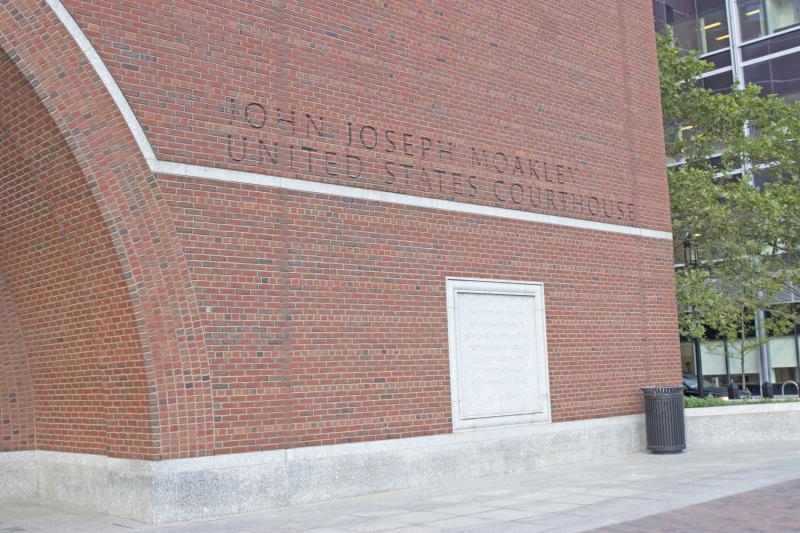Former Selectman George sentenced to 70 months in prison
Former Dartmouth Select Board member John George has been sentenced to almost six years in prison following an April conviction on federal embezzlement and conspiracy charges.
George was ordered Wednesday by Judge Denise J. Caspar of the United States District Court District in Boston to serve 70 months in prison plus three additional years of supervised release following his initial sentence, and to pay $688,772 in restitution to the Southeastern Regional Bus Company (SRTA).
George, who owned the Union Street Bus Company in New Bedford, was convicted on charges that he embezzled money from the company, which operated under SRTA and was subsidized with taxpayer funds. The corruption charges were in relation to George using bus company workers for John George Farms on Slocum Road and boosting his salary in order to receive an increased pension.
“I disagree with the verdict, and I disagree with the sentencing,” said George’s lawyer, William J. Cintolo, who argued against the harsher sentencing Wednesday. "Years of behaving yourself — this is one of the nicest fellows I’ve ever met — I don’t think the prosecution got it right.”
George was not available for comment following the proceedings.
Prosecutor Dustin Chow of the United States District Attorney’s Office had requested a 120-month sentence Wednesday.
The embezzlement charge carried a maximum of 10 years in prison and up to $250,000 in fines. The corruption charge allowed a maximum five-year prison sentence and $250,000 in fines.
George received 60 months on the corruption charge and 70 months on the embezzlement charge to be served concurrently.
According to the United States District Attorney’s Office, George “conspired with certain individuals to have various Union Street Bus Company employees work at the John George Farm during their assigned work hours.”
The farm work included plowing, loading produce and operating a produce stand at John George Farm, all during Union Street Bus Company business hours.
“This is a sad case for Mr. George,” said Chow in his final sentencing request. “He had all the money, he had all the prestige, but at the end of the day, he made over $1 million (through the bus company), he made hundreds of thousands every year at his farm, but it wasn’t enough . . . the defendant took and took and took.”
A decision regarding $1.3 million in forfeiture from George to SRTA involving management costs associated with George’s salary was pushed back to August 13, as Caspar noted a need to identify the differences between the restitution costs and the forfeiture request by the prosecution.
Caspar questioned an overlap in the two monetary requests from the prosecution.
“I need to consider the standards,” said Caspar. “I’m struggling with the money judgment here. Because it’s a significant component, it’s something I would need to resolve.”
George, who stepped down from the Select Board following his conviction in April, was given until September 23 to surrender himself to incarceration.
Dartmouth officials appeared reluctant to comment on the sentencing, although several had expressed sadness following George's conviction.
“I’m disappointed that it is for a such a long jail sentence,” said State Representative Chris Markey. “I think there are mitigating circumstances in relation to the things he’s done in his life to help people. John is one of the hardest working people I’ve met in my life. He worked in the fields from early in the morning to late into the evening. Anyone in Dartmouth would attest to that.”
Markey also spoke to the opportunities George gave to young people working on the farm, as well as to help he’s provided for seniors in the community.
“At the same time, I understand that a penalty needs to be imposed, but when you look at all the circumstances, it’s not a good day for the town.”












